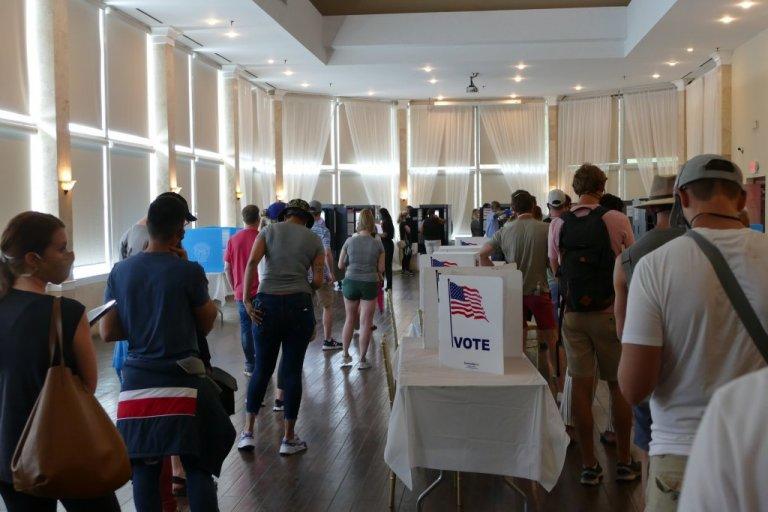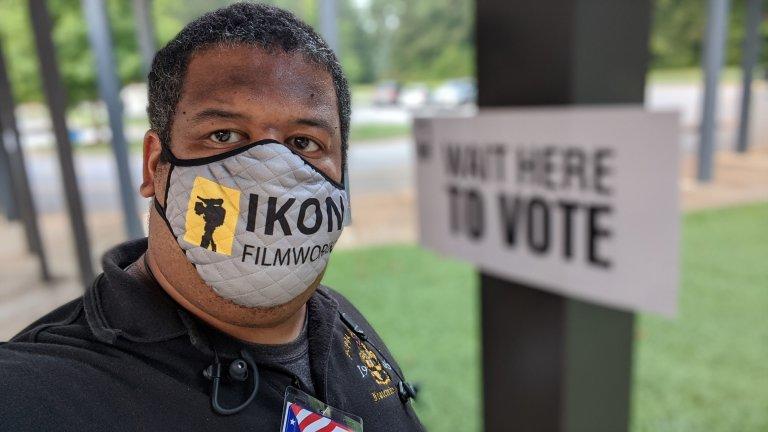
Caption
Long lines during Georgia's June 9 primary were in part attributed to experienced older poll workers backing out due to coronavirus worries. Georgia's secretary of state says about 14,600 Georgians have since signed up as poll workers this summer, seeming to put the statewide goal of 20,000 within striking distance before November.
Credit: John McCosh


